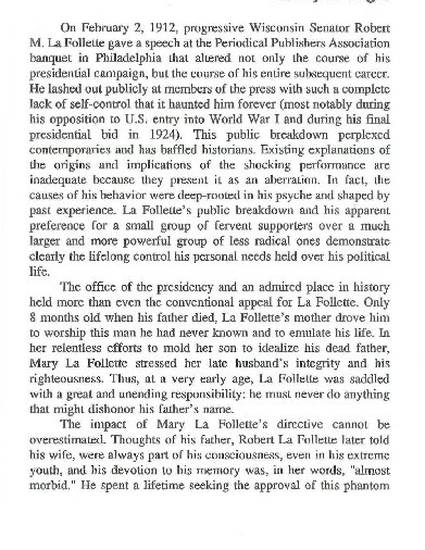
On February 2, 1912, progressive Wisconsin Senator Robert M. La Follette gave a speech at the Periodical Publishers Association banquet in Philadelphia that altered not only the course of his presidential campaign, but the course of his entire subsequent career. He lashed out publicly at members of the press with such a complete lack of self-control that it haunted him forever (most notably during his opposition to U.S. entry into World War I and during his final presidential bid in 1924). This public breakdown perplexed contemporaries and has baffled historians. Existing explanations of the origins and implications of the shocking performance are inadequate because they present it as an aberration. In fact, the causes of his behavior were deep-rooted in his psyche and shaped by past experience. La Follette's public breakdown and his apparent preference for a small group of fervent supporters over a much larger and more powerful group of less radical ones demonstrate clearly the lifelong control his personal needs held over his political life.
